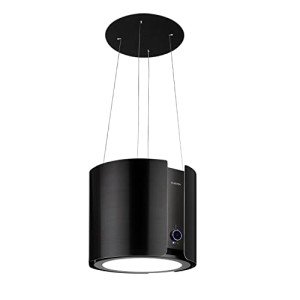21
MayThe Worst Advice We've Heard About Island Extractors
Island Extractors: A Comprehensive Guide to a Unique Industry
In the realm of extraction markets, cooker hoods for islands few sectors record the imagination as strongly as that of island extractors. These specialized entities focus on the extraction of important resources, both sustainable and non-renewable, from island communities. This short article looks into the multifaceted world of island extractors, discussing their operations, environmental effects, and the future of this niche industry.
Understanding Island Extraction
Island extractors are companies or people that engage in the extraction of natural resources located on islands. This extraction can include a range of materials, such as minerals, nonrenewable fuel sources, and even marine resources. Provided the distinct ecosystems found on islands, the extraction process can present both chances and fundamental difficulties.
Classifications of Island Extraction
Island extraction can generally be classified into several categories:
| Category | Description | Examples |
|---|---|---|
| Mineral Extraction | The elimination of minerals from the earth | Kaolin, Bauxite, Iron Ore |
| Fossil Fuel Extraction | Extraction of fuels formed from raw material over millennia | Oil, Natural Gas |
| Marine Resource Extraction | Harvesting resources from oceanic environments | Fish, Seaweed, Shellfish |
| Renewable Resource Extraction | Extraction of sustainable resources | Wood, Freshwater |
The Process of Island Extraction
The extraction process itself can differ substantially based on the resource in concern. The treatments for drawing out oil diametrically vary from those for gathering seafood.
Actions in the Extraction Process
- Expedition: This phase includes geological studies and preliminary research studies to evaluate the potential of the resource.
- Regulations Compliance: Compliance with local and global environmental laws is crucial to ensure sustainable practices.
- Extraction: This includes drilling for oil or mining for minerals, and can trigger significant disturbance to local ecosystems if not handled properly.
- Transportation: Extracted resources generally require transport back to the mainland or other markets, typically involving making use of ships and barges.
- Post-Extraction Restoration: Efforts to restore the environment post-extraction are important to reduce lasting effects.
Ecological Impact of Island Extraction
Offered the delicate nature of island extractor fan environments, the environmental impact of extraction activities can be significant.
Key Environmental Concerns
- Environment Destruction: The physical elimination of landscapes can ravage local flora and animals.
- Contamination: Resource extraction can introduce contaminants, resulting in ocean acidification, water contamination, and air quality deterioration.
- Coastal Erosion: Activities can exacerbate seaside erosion, modifying the natural landscape and affecting regional communities.
- Biodiversity Loss: Extractors typically disrupt local communities, putting native species at threat.
Mitigation Measures
To counteract these impacts, island extractors are increasingly adopting sustainable practices which include:
- Implementing stricter ecological policies
- Utilizing innovation for more secure extraction procedures
- Performing extensive environmental effect evaluations (EIA)
- Engaging with local neighborhoods throughout planning and operation stages
The Future of Island Extraction
As international need continues to rise cooker hoods For islands natural resources, the future of island extractors appears promising yet complex. A number of aspects will form the trajectory of this market in coming years:
- Technological Advancements: Innovations in extraction technology may lead to more effective and less ecologically disruptive approaches.
- Regulative Changes: As environment modification becomes an ever-pressing issue, stricter guidelines might redefine extraction practices, prioritizing sustainability.
- Pressure from Environmental Groups: Increased advocacy for the security of biodiversity and communities can affect operational protocols.
- Shift towards Renewable Resources: A growing focus on renewable resource options may change the focus from non-renewable extraction to sustainable practices.
Frequently Asked Questions
What resources are typically drawn out from islands?
Common resources drawn out from islands consist of minerals, nonrenewable fuel sources, wood, freshwater, and marine resources such as fish and seaweed.

How do island extractors make sure sustainability?
Island extractors can ensure sustainability by sticking to environmental guidelines, integrating innovation that decreases impact, and bring back environments post-extraction.
What are the major obstacles dealt with by island extractors?
Obstacles consist of compliance with policies, managing ecological impacts, logistical issues connected to transport, and engaging with local neighborhoods impacted by extraction.
Are there any noteworthy island extraction tasks?
Yes, numerous projects exist worldwide, including mineral mining in the Caribbean, oil drilling in the North Sea, and sustainable fish farming efforts in Southeast Asia.
The world of island cooker hood uk extractors is a complicated interaction in between economic opportunity and environmental obligation. As this industry develops, the obstacle will be to stabilize resource extraction with the requirement to protect delicate island cooker hood ecosystems. By embracing sustainable practices and engaging with regional communities, island extractors can forge a path that respects both nature and industry, guaranteeing that these special environments are maintained for generations to come.

Reviews